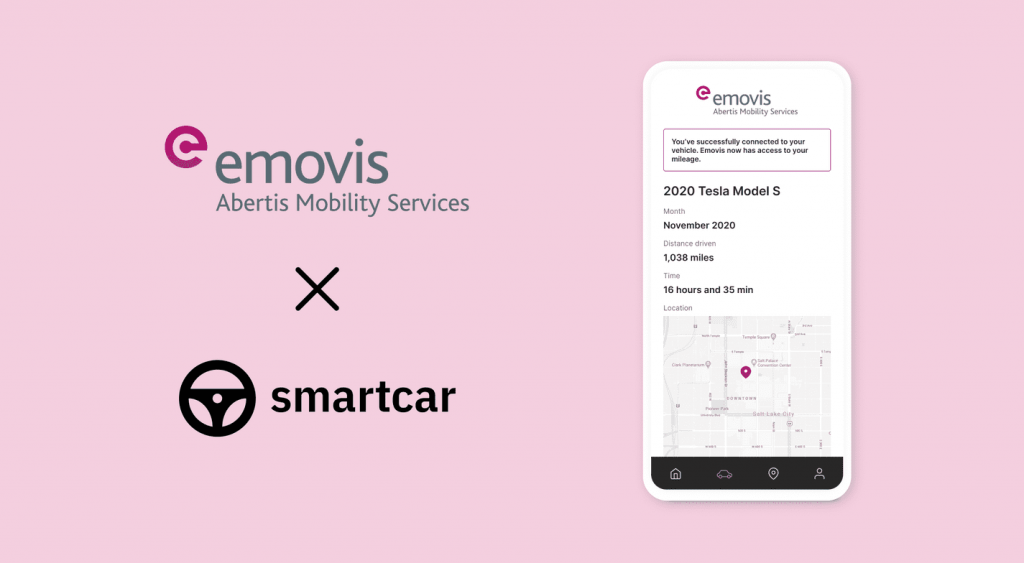Smartcar and Emovis partner to power road-usage charge program

Smartcar and the toll-based mobility services provider emovis partner to provide a fair and sustainable road usage charge program to vehicle owners in Utah. Since January 2020, Smartcar’s hardware-free mileage verification API has helped simplify the program’s onboarding experience and increase conversions.
Fuel tax revenue decreases
State governments across the U.S. face increasing challenges with one of their primary funding mechanisms: the fuel tax. The taxes that states collect on gasoline and diesel fuel purchases go toward road construction and repair. As cars become more fuel-efficient and electric vehicles become more common, gas tax revenue steadily decreases, and many states struggle to cover their road maintenance costs.
Although more than half of U.S. states have either raised or reformed their fuel taxes since 2013, those efforts fail to provide a fair and sustainable solution to the problem. First, raising fuel taxes means that owners of gasoline and diesel cars pay a significant amount of taxes, while hybrid and electric vehicle owners pay significantly less or nothing at all. Second, as more and more people switch to alternative fuel vehicles, states will have to keep increasing gas taxes until fuel becomes unjustifiably expensive.
Road usage charge replaces the fuel tax
What is road usage charge?
Some U.S. states are exploring road usage charge (RUC) programs as an alternative to the fuel tax. Road usage charge is the concept of charging vehicle owners a per-mile fee instead of taxing their gasoline and diesel fuel purchases. The solution is fair to vehicle owners, who get charged based on how much they use the state’s roads regardless of the type of car they drive. It is also sustainable for state governments, which no longer depend on gasoline purchases.
Smartcar powers emovis road usage charge program
Emovis partners with state governments across the country to offer voluntary road usage charge programs for owners of electric and hybrid vehicles. As part of their road usage charge program in Utah, emovis offers participants two ways of sharing their annual mileage: a plug-in OBD device or a hardware-free solution. Owners of vehicles manufactured in 2014 and earlier need to receive and install an OBD device in their cars and upload a photo of their odometer reading once per year. Owners of newer vehicles can choose the hardware-free solution, which is powered by Smartcar.
Smartcar allows vehicle owners to connect their cars with just three clicks from the emovis app. Emovis then uses Smartcar’s mileage verification API to retrieve the vehicle’s odometer reading at regular intervals. Participants don’t need to install any hardware in their cars, and they don’t need to upload photos of their odometer readings. Instead, emovis retrieves this information directly from the vehicle’s instrument cluster.

An increase in onboarding success rates
Smartcar has helped emovis simplify the program’s user experience and boost onboarding success. With Smartcar’s technology, emovis has been able to onboard new vehicles to the program faster and more efficiently than before while providing a friendly user experience to participants.
“We’ve gotten great feedback so far,” said emovis Senior Program Manager Charlie Mitchell. “Participants love how easily they can connect their cars without needing to worry about an OBD device.”
If road usage charge programs like the one in Utah prove successful, state governments might make them a requirement for electric and hybrid vehicle owners.
“Road usage charge is the future of fair and sustainable transportation,” said Smartcar CEO Sahas Katta. “We’re glad that emovis and Smartcar play a role in this transition, and we can’t wait to see other states follow Utah’s example.”

